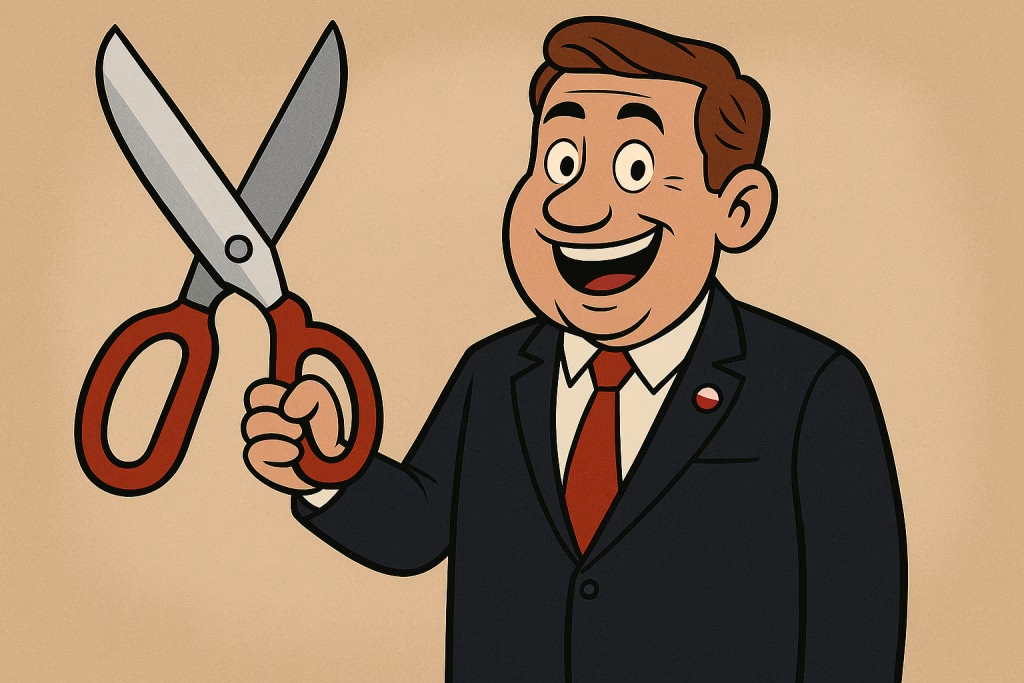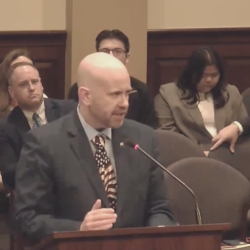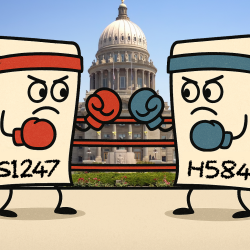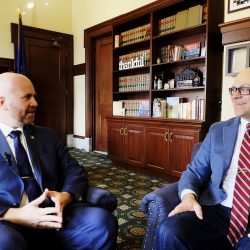At last Thursday’s Capitol Clarity, Sen. Glenneda Zuiderveld and Rep. Josh Tanner shared their work in trying to exercise oversight of the Idaho Dept. of Health and Welfare (IDHW). This agency controls the largest single chunk of the state budget due to its handling of Medicaid, and it currently faces eight findings of malfeasance from an independent audit last summer.
Watch the whole program here:
During the program, Idaho Freedom Foundation policy analyst Niklas Kleinworth unveiled a mini-documentary that he produced about the IDHW. Watch that by itself here:
At the heart of this conflict is a real question of who gets to make the rules for society. Is it the permanent bureaucracy, or our elected lawmakers? In 2022, the Idaho Legislature approved a $6 million grant for IDHW to support K-12 education through various nonprofits. Putting aside the fact that this is already well beyond the purpose of government, the Legislature was clear that this was for K-12 only, not pre-K programs. Yet the bureaucrats in IDHW decided to distribute the money to their friends in pre-K nonprofits anyway. They, unelected bureaucrats within a state agency, believed they knew better than our elected representatives.
In the video above, Kleinworth exposes how IDHW staff conspired to deliberately ignore the clear intent of the Legislature, dismissing it as out-of-state conservative activism. They figured they could just wait it out rather than showing any deference to the peoples’ representatives.
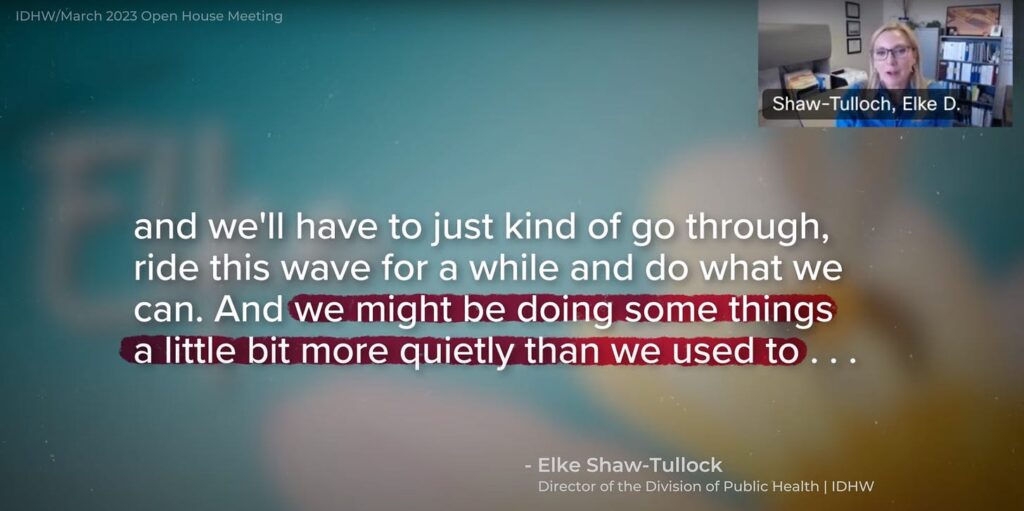
This has been a growing problem in our country for nearly a century. Franklin Roosevelt’s New Deal created a massive administrative state designed to keep running an economic system he believed had grown too large to simply allow to run on its own. At some point the administrators of these executive branch agencies decided they knew better than the elected representatives who ostensibly exercised oversight, and in doing so took on the role of oligarch.
There’s a certain perverse logic to it. Elected officials have political concerns to worry about. They need to please their constituents if they want to win reelection, so their incentives are not always aligned with what is good for the country. Elected officials are often novices in the various fields they are supposed to supervise, so it’s best to leave management of those fields to the experts.
Right?
Presidents used to have plenary power to hire and fire anyone in the executive branch. The downside of this was that they often staffed their administrations with supporters who were unqualified for their jobs. Andrew Jackson’s “Kitchen Cabinet” was perhaps the most egregious example. The solution was a civil service system where most positions outside of the top administrators were removed from political control. The result has been a permanent bureaucracy, a system that keeps doing its thing no matter who we send to Congress or the White House.
This is the “deep state”. Do you remember when President Donald Trump was impeached for his phone call with Volodomyr Zelensky of Ukraine? State Department bureaucrats such as Alexander Vindman and Marie Yovanovitch testified that Trump had subverted American foreign policy, as if that policy was decided in the bowels of Foggy Bottom rather than the Oval Office.
Richard Nixon related in his memoirs that he intended to challenge the permanent bureaucracy in his second term, but we all know how that story ended. The deep state struck back, using their influence over the media to amplify a minor scandal into a presidential resignation. That bureaucracy has only grown more powerful in the succeeding fifty years.
Ronald Reagan explained the problem of an out-of-control bureaucracy to Johnny Carson way back in 1975, but even as president he was unable to address the problem.
I was listening to a show by Auron MacIntyre with Darryl Cooper of MartyrMade while putting this essay together, so I was pleased to hear Cooper bring up the same idea. At the 1:04:00 mark, he explains that the government doesn’t work like we were told on Schoolhouse Rock:
Here in Idaho we face the same questions about who rules our society. Right now there is a tremendous power differential between the executive and legislative branches of our government.
Our Legislature is made up of 105 people elected from all corners of the state. Legislators are technically part time, paid less than $20,000 for their work. They have no staffs and their offices in the Capitol can be quite small. They are required to vote on hundreds of bills during a three month legislative session, leaving very little time to deeply evaluate any of the issues upon which they are called to exercise their lawmaking authority.
On the other hand, the executive branch is massive. The elected positions – governor, lieutenant governor, attorney general, secretary of state, treasurer, and controller – are all full time positions and each has a large staff to help carry out their duties. The governor oversees the twenty agencies that were created by the Idaho Constitution but nearly two hundred sub-agencies have been created to get around that constitutional limit.
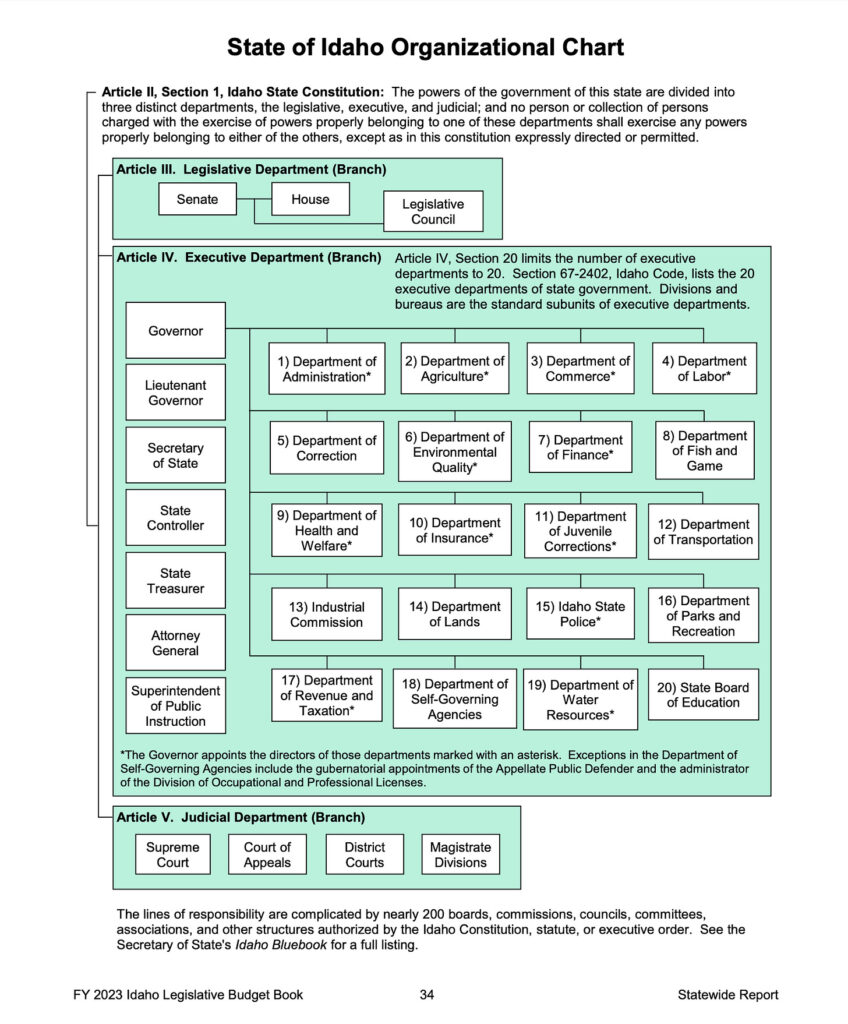
Each of these agencies, commissions, and boards have their own full time staffs as well as taxpayer-supported budgets. In fact, many of them have the privilege of presenting their budgetary requests directly to the Legislature – they literally spend tax dollars to try to get more tax dollars.
The governor directly appoints many of these agency heads, subject to Senate confirmation, and the Senate rarely rejects a nominee.
Many of these agencies have regulatory power, meaning the rules they craft have the force of law for citizens like you and me. Again, the Legislature has to approve these rule changes, but they rarely have time to fully dig into the repercussions of each rule change, much less push back in a meaningful way.
How is a part time legislature, whose members are tasked with investigating hundreds of bills, rule changes, and appointments in a three month span, without dedicated staff, supposed to supervise a massive bureaucracy like that?
The answer is they are not really supposed to do so. There’s been a meme floating around the past few weeks that “the purpose of a system is what it does”. If you’re told that a system is supposed to do one thing, but it continually ends up doing something else, then for all intents and purposes it doesn’t matter what it was originally intended for. The Legislature is supposed to supervise the bureaucracy, but it doesn’t, so it’s time to start acting according to reality.
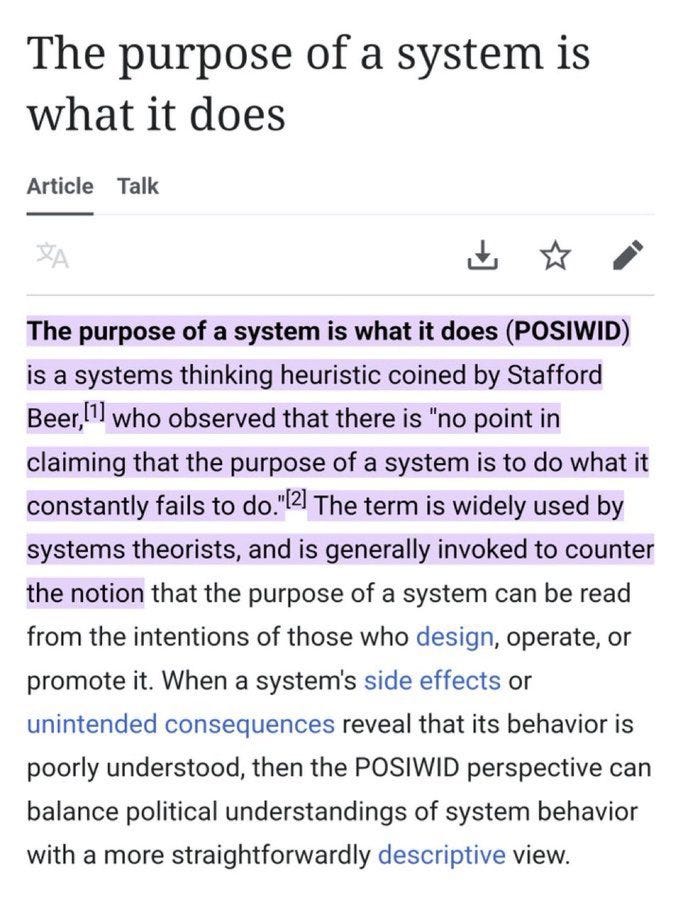
How can we bring our government back into balance?
First, we need to rein in the executive branch. Do we really need a Hispanic Affairs Commission? What about the Humanities Council? How about the STEM Action Center? Go through the list yourself and see what you could cut. Many of these agencies perform functions that are well outside a traditional view of the role of government.
Of course, a lot of people, even self professed conservatives, have come to accept the view that the role of government includes anything that is good and helpful. Consider Sen. Ben Adams defending taxpayer funded Idaho Public TV on the floor last year.
The other hindrance to reducing the size and scope of government is the implicit idea that these agencies are jobs programs. Any legislator who makes a serious attempt to shut down any of these agencies will be subject to sad stories in the Idaho Statesman about state employees facing layoffs, not to mention people who benefit from the programs.
Yet it must be done. We need more lawmakers with the courage to think big, but the handful that do are castigated by legislative leadership, the executive branch, and the PACs and lobbyists that support the current system. It’s not enough that big corporations have an outsized seat at the table in the governor’s office and exert tremendous influence over the bureaucracy, they want complete control of the Legislature as well. It takes more than courage to stand up to this, it takes money, it takes volunteers, it takes an ability to have your name slandered from Bonners Ferry to Bear Lake and to keep going.
The other way to bring our government back into balance would be to strengthen the Legislature. Is it time for a full time legislature? They’re basically full time already, working on legislation and meeting with constituents throughout the year. Making it official, and raising their salaries commensurately, would not only give them more time to evaluate the laws, rules, and appointees they are to vote on, but it would also open up the Legislature to regular working people who currently can’t afford to leave their jobs to run and serve.
A full time Legislature with a full time staff would be able to push back on the bureaucracy on behalf of the people. Obviously I’m hesitant to fully recommend such an action, because I don’t think our Founders intended us to have full time legislatures. They foresaw regular men leaving their jobs and families to do the work of legislation and then returning home, not staying in the swamp for decades on end.
Perhaps it is necessary, though. Our society is not what it was in 1789, and we have to adapt to the current situation. Right now it’s clear that the bureaucracy runs our government, and that elected leaders are often little more than figureheads.
Fixing this situation will require lawmakers and candidates who are courageous enough to make big changes and voters who are brave enough to support them. I know you are, but what about everyone else?
Bonus note for paid subscribers over at Substack.
About Brian Almon
Brian Almon is the Editor of the Gem State Chronicle. He also serves as Chairman of the District 14 Republican Party and is a trustee of the Eagle Public Library Board. He lives with his wife and five children in Eagle.



